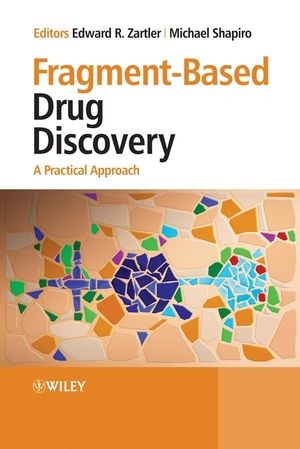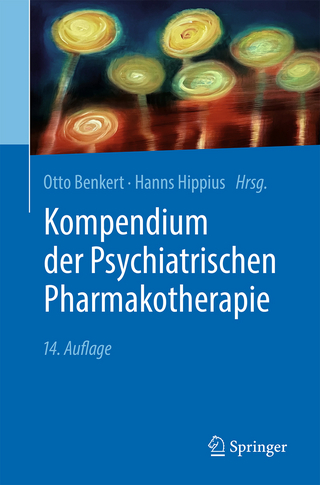
Fragment-Based Drug Discovery
John Wiley & Sons Inc (Verlag)
978-0-470-05813-8 (ISBN)
Fragment-based drug discovery (FBDD) is a new paradigm in drug discovery that utilizes very small molecules - fragments of larger molecules. It is a faster, cheaper, smarter way to do drug discovery, as shown by the number of pharmaceutical companies that have embraced this approach and the biotechnology companies who use fragments as their sole source of drug discovery. Fragment-Based Drug Discovery: A Practical Approach is a guide to the techniques and practice of using fragments in drug screening. The emphasis is on practical guidance, with procedures, case studies, practical tips, and contributions from industry. Topics covered include:
an introduction to fragment based drug discovery, why using fragments is a more efficient process than predominant models, and what it means to have a successful FBDD effort.
setting up an FBDD project
library building and production
NMR in fragment screening and follow up
application of protein-ligand NOE matching to the rapid evaluation of fragment binding poses
target immobilized NMR screening: validation and extension to membrane proteins
in situ fragment-based medicinal chemistry: screening by mass spectrometry
computational approaches to fragment and substructure discovery and evaluation
virtual fragment scanning: current trends, applications and web based tools
fragment-based lead discovery using covalent capture methods
case study from industry: the identification of high affinity beta-secretase inhibitors using fragment-based lead generation
With contributions from industry experts who have successfully set up an industrial fragment-based research program, Fragment-Based Drug Discovery: A Practical Approach offers essential advice to anyone embarking on drug discovery using fragments and those looking for a new approach to screening for drugs.
Edward R. Zartler, Strategy Consultant, Eli Lilly & Co.; Established the Fragment-based Drug Design paradigm at Eli Lilly. Michael J. Shapiro, Associate Professor of Pharmacy, University of Maryland School of Pharmaceutical Sciences; Industry experience at Lilley, Novartis and Sandoz.
1. Introduction to Fragment based Drug Discovery (Tim Mitchell and Mike Cherry). 2. Building the Perfect Beast: Designing a Fragment Process to Fit Your Needs (Edward Zartler and Michael Shapiro).
3. Assembling a Fragment Library (Mark Brewer, Osamu Ichihara, Christian Kirchhoff, Markus Schade, and Mark Whittaker).
4. The Practical Aspects of Using NMR in Fragment Based Screening (Johan Schultz).
5. Application of Protein-Ligand NOE Matching to the Rapid Evaluation of Fragment Binding Poses (William J. Metzler, Brian L. Claus, Patricia McDonnell, Stephen R. Johnson, Valentina Goldfarb, Malcolm E. Davis, Luciano Mueller, and Keith L. Constantine).
6. Target Immobilized NMR Screening: Validation and Extension to Membrane Proteins (Virginie Früh, Robert J. Heetebrij and Gregg Siegal).
7. In situ fragment-based medicinal chemistry: screening by mass spectrometry (Sally-Ann Poulsen and Gary H. Kruppa).
8. Computational approaches to fragment and substructure discovery and evaluation (Eelke van der Horst and Adriaan P. IJzerman).
9. In Silico Design Chapter (Bradley Feuston, M. Katharine Holloway, Georgia McGaughey and J. Chris Culberson).
10. Fragment-based lead discovery using covalent capture methods (Stig K. Hansen and Daniel A. Erlanson).
11. Identification of high affinity beta-secretase inhibitors using fragment-based lead generation.
Jeffrey S. Albert and Philip D. Edwards.
| Erscheint lt. Verlag | 31.12.2008 |
|---|---|
| Verlagsort | New York |
| Sprache | englisch |
| Maße | 177 x 251 mm |
| Gewicht | 709 g |
| Themenwelt | Medizin / Pharmazie ► Medizinische Fachgebiete ► Pharmakologie / Pharmakotherapie |
| Naturwissenschaften ► Chemie | |
| Technik | |
| ISBN-10 | 0-470-05813-7 / 0470058137 |
| ISBN-13 | 978-0-470-05813-8 / 9780470058138 |
| Zustand | Neuware |
| Haben Sie eine Frage zum Produkt? |
aus dem Bereich


